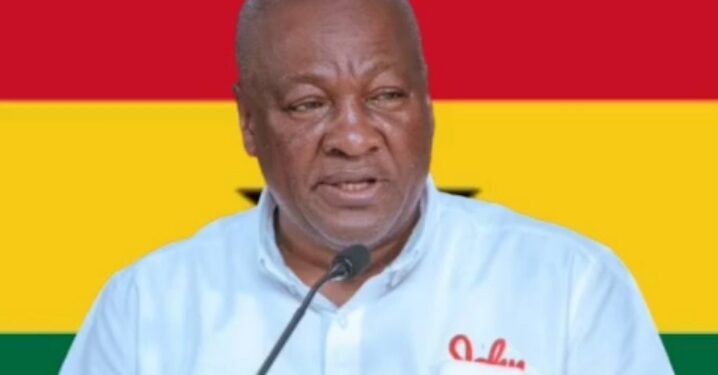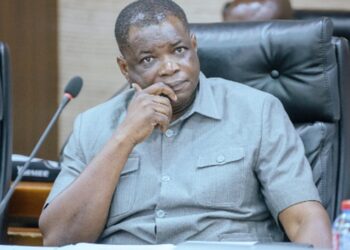By: Nana Kwasi Roka
IN A MOVE set to redefine Ghana’s economic structure and labor landscape, President John Dramani Mahama will on July 1, 2025, officially launch the country’s most ambitious economic reform yet – the 24-Hour Economy Policy.
First proposed during the 2024 campaign season, the policy seeks to create jobs, boost productivity and unlock the full economic potential of Ghana by encouraging businesses, public services and critical sectors to operate round-the-clock.
But what exactly does a 24-hour economy mean – and why does it matter now more than ever?
Understanding the 24-Hour Economy
A 24-hour economy is one where commercial and productive activities extend beyond the traditional 8 a.m. to 5 p.m. working hours. It spans sectors such as manufacturing, healthcare, transportation, tourism, ICT, logistics and security – operating in three continuous shifts to maximize output, provide continuous services and keep the wheels of the economy spinning even at night.
Globally, cities like New York, London, Singapore and Sydney have adopted 24-hour economy models to match modern demands, support international business and create more inclusive employment opportunities. Now, Ghana is preparing to join that league.
Why Now? Ghana’s Rationale
With rising youth unemployment, underutilized public infrastructure and a growing need to industrialize beyond cocoa and gold, the timing for this policy could not be more urgent.
President Mahama’s vision aligns with Ghana’s economic realities:
Youth bulge: Millions of young people enter the job market annually.
Idle infrastructure: Roads, ports and factories lie dormant at night.
Energy expansion: Ghana’s energy generation capacity has improved in recent years.
Globalization: Trade and commerce don’t sleep – and neither should competitive economies.
What Will Change?
Under the 24-hour economy policy, selected sectors will be incentivized to operate in shifts – morning, afternoon and night – with the support of:
● Government-backed tax incentives
● Subsidized utilities for night operations
● Security and policing support
● Labor and wage protections
● Public-private partnerships to facilitate implementation
Pilot projects will likely begin in key industrial and urban centers such as Tema, Kumasi, Accra and Takoradi.
Lessons from the World
Many countries already practice this policy, either fully or partially:
New York City is famous as “The City That Never Sleeps,” with subways, hospitals, restaurants and emergency services running 24/7.
London operates the Night Tube, a system supporting nightlife, tourism and late-shift workers.
Sydney launched a 24-hour economy strategy post-COVID to revive urban productivity.
Singapore runs a de facto 24-hour system in finance, logistics and public services.
Ghana’s move, while ambitious, is far from experimental.
Potential Benefits for Ghana
1. Massive Job Creation: A shift-based system could absorb thousands of unemployed youth into meaningful employment.
2. Industrial Growth: Factories and processing plants will no longer lie dormant overnight.
3. Public Service Efficiency: Healthcare, sanitation and emergency services can become more responsive.
4. Urban Revitalization: Nightlife, transport and tourism will receive a boost, creating vibrant 24-hour cities.
5. Revenue Expansion: Round-the-clock economic activity will expand the tax base and GDP.
6. Decongested Infrastructure: Staggered shifts mean less pressure on roads, offices and markets during peak hours.
Real Challenges Ahead
However, the success of this policy will depend on Ghana’s ability to overcome key hurdles:
Electricity reliability: Continuous power supply is essential for uninterrupted operations.
Night security: Safety of workers and infrastructure must be guaranteed.
Labour protections: Shift workers must receive fair wages, healthcare and rest periods.
Transport systems: Affordable and available transport must support night operations.
Cultural readiness: Some communities may resist night shifts due to religion, norms or safety concerns.
The Way Forward
For this policy to work, gradual implementation is key. Ghana must start with specific sectors – manufacturing, health, logistics and tourism – and expand once systems prove viable. Worker welfare, strong enforcement of labour laws and reliable infrastructure investment will determine whether the 24-hour economy becomes a national success story or a well-intentioned misstep.
Conclusion:
A New Chapter Begins
President Mahama’s 24-hour economy policy signals a bold step toward modernizing Ghana’s economy. It is a vision rooted in economic pragmatism, youth empowerment and global competitiveness.
As July 1 approaches, all eyes will be on the government to move from policy promise to practical delivery. If well-implemented, the 24-hour economy could very well be the spark that finally puts Ghana on the path to sustainable, inclusive and modern economic transformation.
Follow Nationaltymes.com for continued coverage of the launch, expert analyses and regional updates on how Ghana’s 24-hour economy is reshaping the nation.
Source: Nationaltymes.com

















